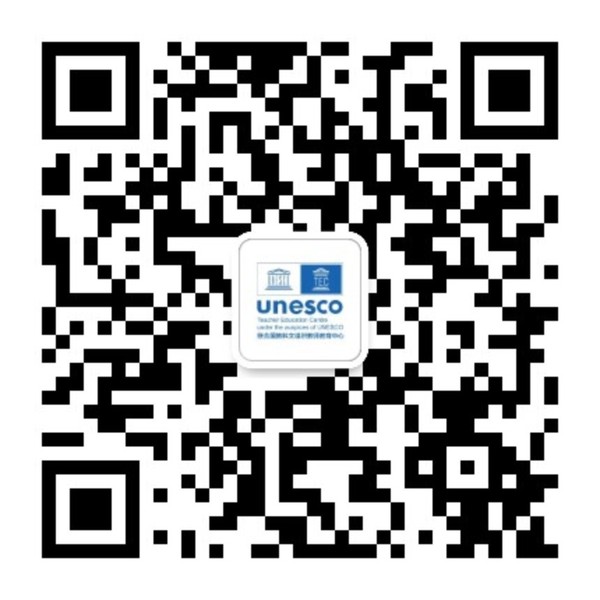Forum 1: Exploring STEM Education
Shi Chenying, a master’s student from Shanghai Normal University, hosted Forum 1—Exploring STEM Education. He Huan from Sichuan Normal University, Wang Teng from Liaoning Normal University, Wang Zhenqiang from Nanjing Normal University, Li Huaiyu from Flinders University, Xiao Mingxiang from Shanghai Normal University, and Zhang Yaru from Shanghai Normal University delivered presentations on the following topics respectively: Dilemmas and Reflections on Women’s Participation in Higher STEM Education in the United States; The Development of STEM Education in Australia: Context, Policies and Practices; Key Topics in Science Education Research and Their Implications—A Review of Handbook of Research on Science Education (Volume II); Construction and Implementation of Secondary School Mathematics STEM Courses Based on the Concept of Sustainable Development; Interpretation and Insights from Interdisciplinary Integrated Education: A Guide to STEM Teaching; and Building a New Heights for China’s STEM Education through International Organization Platforms: Why and How—A Study on the Construction of the International STEM Education Research Institute.
Teacher Song Jia from the UNESCO Teacher Education Centre served as the commenting expert. She acknowledged the research outcomes of the six students, noting that these topics are of contemporary significance, approaching the subject from diverse national and perspective-based angles. Meanwhile, Teacher Song Jia offered valuable suggestions tailored to each student’s research, covering aspects such as refining the scope of topics, elaborating on background information, selecting and delving into key points, and exploring insights that China’s STEM education can draw upon. Her guidance deeply inspired the students, leaving them with substantial gains.
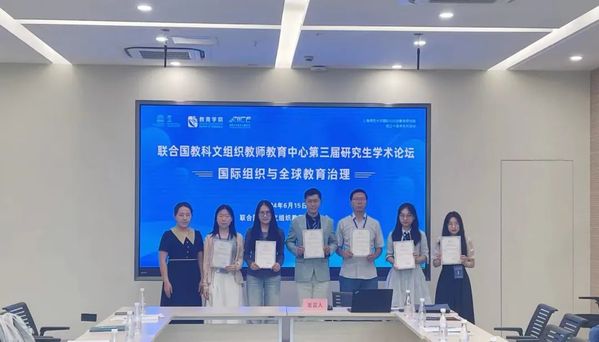
Forum 2: Digital Transformation in Education
Ling Hui, a master’s student from Shanghai Normal University, hosted Forum 2—Digital Transformation in Education, with Professor Ningbo from the UNESCO Teacher Education Centre as the commentator. Four students—Gao Ya from Anhui Normal University, Kang Le from Chongqing Normal University, Wang Yan from Northwest Normal University, and Ling Hui from Shanghai Normal University—shared their research on: The Impact of Neoliberalism on Digital Governance in Australian Basic Education—A Case Study of NAPLAN Digital Assessment; Research on Digital Transformation Empowering Innovation in Kindergarten Curriculum Reform; A Study on Policies for Enhancing Digital Literacy Among Primary and Secondary School Students in France; and The Impact of Large Language Models on Higher Education in Germany and Implications for China—A Case Study of ChatGPT.
In the commenting session, Professor Ningbo pointed out the strengths and weaknesses of the four papers and provided specific revision suggestions. He explored questions such as What is digital education? and How to understand digital literacy, emphasizing that digital literacy refers to the ability to use data. We need to transform specific data into a distinct culture through data literacy. Therefore, in the era of digital transformation, we should highlight Chinese characteristics and socialism, he stated. The forum not only provided a platform for students to exchange ideas and learn but also broadened their academic horizons and sparked new research inspirations.
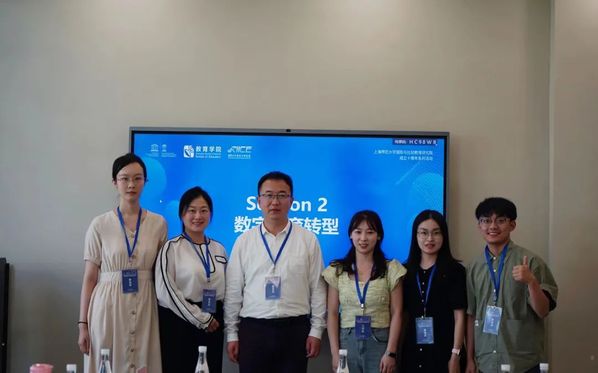
Forum 3: Global Educational Governance
Feng Yuan, a master’s student from Shanghai Normal University, hosted Forum 3—Global Educational Governance. Qin Yuxuan from Hunan University, Zhu Aiyuxin from Southwest University, Wang Huihui from Shanghai Normal University, and Feng Yuan from Shanghai Normal University delivered reports on: The Theoretical Framework, Practical Paths and Insights of EU STEM Transversal Skills Assessment; UNESCO’s Governance of AI in Education: Ethical Missions, Content Paths and Governance Mechanisms; Policies, Practices and Insights of Digital Infrastructure Development in U.S. Basic Education; and Understanding Finnish Education Yesterday and Today through PISA.
Teacher Bian Cui from the UNESCO Teacher Education Centre provided guidance and suggestions to each student based on their presentations. She suggested that after sorting out the EU STEM transversal skills assessment framework, students could further explore the development stage of STEM education in China; that after discussing the theoretical logic of AI in education governance, they could supplement the current application status; and that on the basis of raising issues, they should enrich content related to the current state of Finnish education. The forum not only offered an academic exchange platform but also helped students clarify where to focus their efforts based on different research objectives.
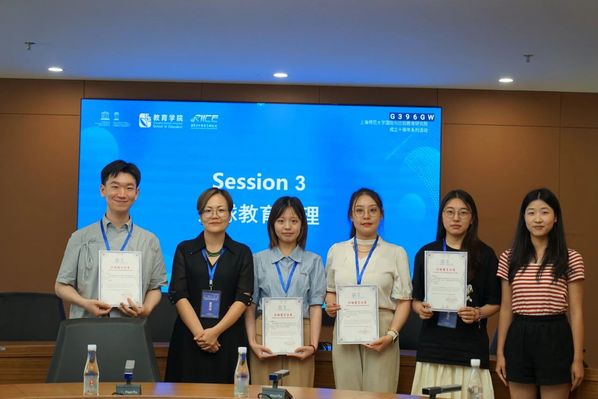
Forum 4: Talent Cultivation Models
Ran Ran, a master’s student from Shanghai Normal University, hosted Forum 4—Talent Cultivation Models. Chen Zhijuan from Nanjing University; Hu Xinzhi and Pan Maobo from Tongji University; Wan Yawen from Tongji University; Zhang Qiang and Zhang Ying from East China Normal University; and Li Yingying from Shanghai Normal University shared their research on: The Impact of Campus Environment Support on Doctoral Students’ Academic Time Investment—An Analysis Based on Nature Global Survey Data; The ‘Integrated’ Sino-German Joint Cultivation Model for High-Level Talents, Its Dilemmas and Safeguarding Strategies; The Design Logic and Experience Insights of High-Level Medical Doctor Talent Cultivation Model at Johns Hopkins University; The ‘Dual Path’ of Academia: An Exploration of Education Research-Practice Partnerships Abroad; and A Study on the Cultivation and Selection of Talent for International Organizations in France.
Professor Zheng Gaoming from Tongji University served as the commenting expert. He affirmed the diverse research perspectives and theoretical models, discussed the paper frameworks, research methods, and existing challenges with the students, and kindly encouraged each student to have more confidence in their academic abilities. Professor Zheng also pointed out that students should strengthen their research objectives and contributions, and in empirical research, clarify the problem gaps of the research objects and explain how the cases used can provide insights and solutions to the problems.
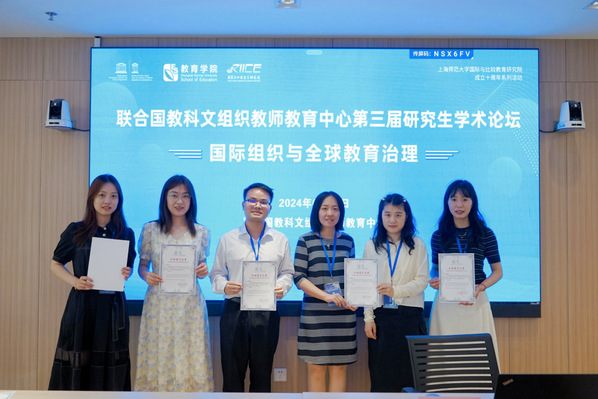
Forum 5: International Organization Practices
Hua Xuanzi, a master’s student from Shanghai Normal University, hosted Forum 5—International Organization Practices. Li Huayang from East China Normal University, Ruan Jingjie from Beijing Foreign Studies University, Liu Yujia from Nanjing Normal University, Liu Cunyu from Zhejiang University, Zhou Jun from Beijing Foreign Studies University, and Lu Yuzheng from Zhejiang University shared their research on: Exploration and Practice of Primary School Interdisciplinary Thematic Activities Under the IB Curriculum Concept; A Study on Strategies of Regional International Organizations in Participating in STEM Education Governance; The EU’s Digital Strategy Layout for Vocational Education and Germany’s Practice During the Riga Cycle—A Case Study of the ‘Vocational Education 4.0’ Plan; A Review and Evaluation of UNESCO’s Paths to Promote Women’s Participation in STEM Education; Global Educational Governance and Adjustment from the Perspective of International Organizations: Motivations, Measures and Characteristics; and Recovery and Transformation: An Analysis of UNESCO’s Strategy for Technical and Vocational Education and Training (TVET) 2022-2029.
Teacher Liu Huacong from Shanghai Jiao Tong University served as the commenting expert for this forum and conducted a detailed review of the six students’ research outcomes. She first affirmed the efforts of each student and offered encouragement. From a professional research perspective and theoretical standpoint, she provided personalized comments on each student’s work and put forward targeted improvement suggestions. Professor Liu argued that students should not be satisfied with simple translations of reports or the use of a single research method. She emphasized the need to delve into the theoretical connotations of papers, enhance mastery and application of research paradigms, and thereby improve the logical rigor and academic professionalism of the papers. Through Professor Liu’s guidance, the students gained valuable insights and made further progress in their academic pursuits.
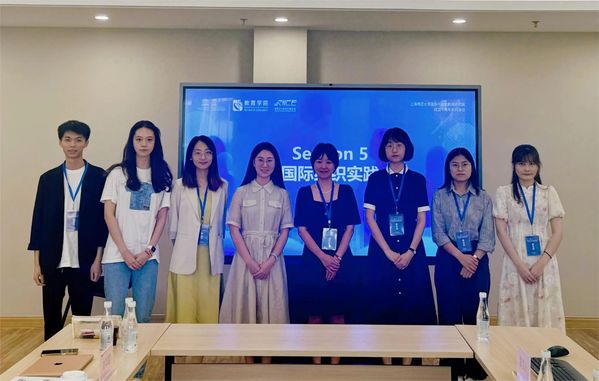
Forum 6: Chinese Educational Experience
Cheng Jialei, a master’s student from Shanghai Normal University, hosted Forum 6—Chinese Educational Experience. Wang Bo from Northeast Normal University, Dong Sijia from Northeast Normal University, Qin Zhenke from East China Normal University, Chen Huiting from East China Normal University, Yang Zihan from East China Normal University, Zhang Yinxiu from Shanghai 师范大学,and Cheng Jialei from Shanghai 师范大学 shared their research on: How Chinese Undergraduate Students’ Perceptions of Assessment for Learning Influence Their Responsibility for First-year Mathematics Courses; The Path of ‘Belt and Road’ University Strategic Alliance in Promoting High-Level Educational Opening-Up—From the Perspective of Barnard’s Organizational Theory; The Architecture, Implementation Strategies and Evaluation Criteria Design of Problem-Solving Project-Based Learning Paths; Core Elements and Tool Development for Assessing Social Responsibility in Primary and Secondary Schools; An Analysis of Teaching Videos in Shanghai’s Online Art Classes: A Qualitative Study Based on NVivo; On China’s Experience in Educational Poverty Alleviation; and Characteristics of Mathematics Classrooms Respecting Students’ Subjectivity: Perspectives from Expert Primary School Teachers in Shanghai.
Teacher Zhang Huafeng from the UNESCO Teacher Education Centre served as the commenting expert. He put forward specific suggestions for each student’s research, emphasizing that research should be more focused, and while valuing practice, academic rigor—especially the selection and construction of theories—should not be overlooked. He also noted that in analyzing and refining Chinese experiences, it is necessary to broaden perspectives and listen to voices both domestically and internationally to better tell the story of Chinese education. Teacher Zhang’s careful guidance benefited all present presenters.
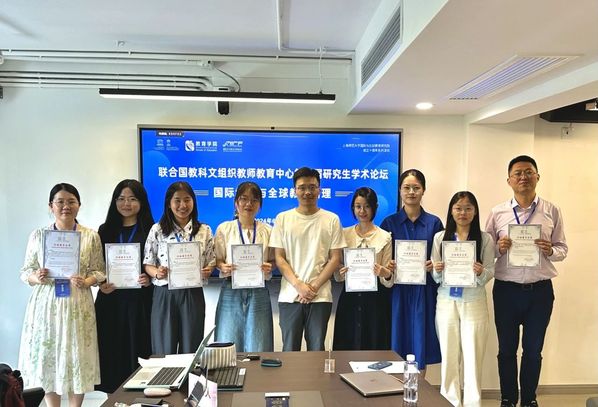
Forum 7: Teacher Education Development
Liu Xiaoyu, a master’s student from Shanghai Normal University, hosted Forum 7—Teacher Education Development. Zhang Feng from East China Normal University, Zhang Chunyan from Sichuan International Studies University, Zhang Yunji from Shanghai Normal University,Zhu Jiawen from Shanghai Normal University,and Zhang Nian from Shanghai Normal University shared their research on: The Impact of Teachers’ Information Technology Application Capabilities on Classroom Teaching Quality from an International Perspective: ‘Empowerment’ or ‘Disempowerment’; The Essence and Evolution of the ‘Casualization’ of Academic Work in U.S. Higher Education Institutions; Cognitive Demands of Mathematical Tasks in Online Video Lessons between Shanghai and England during the COVID-19 Pandemic; Praxeological Trajectories of Two Novice Mathematics Teachers: Responding to Diverse Resources in a Collaborative Documentation Design Environment; and Practice and Insights of Teacher Burden Reduction Policies in Australia.
Professor Zhang Xiaofeng from the School of Education, Shanghai Normal University,was the commenting expert for this forum. He pointed out that the selection of research topics is particularly important, emphasizing the need to operationally define key concepts, focus on problem chains with a progressive logic, and in empirical research, learn to explore empirical data—including primary and secondary data. He also highlighted the importance of in-depth, cross-country analysis of specific areas to propose targeted suggestions, and raised the question How to understand teacher identity, stressing the need to pay attention to teachers’ teaching, research, and social services.

Forum 8: Future Educational Reform
Yu Moran, a master’s student from Shanghai Normal University, hosted Forum 8—Future Educational Reform. Luo Yue from Xiamen University, Yin Wenxuan from Hunan Agricultural University, Ma Ziyu from Qingdao University, Wang Qingtao from East China Normal University, Yu Jinshen from East China Normal University, and Lin Wanting from Shanghai Normal University shared their research on: Trends in International STEM Education Policies and Practices—A Case Study of the U.S., UK, Canada, Australia and New Zealand; Revolution or Crisis: The Empowerment of Large Language Models in University Teaching and Its Limitations; The Role Orientation, Task Directions and Action Strategies of Universities in Serving Lifelong Learning for All; Towards a New Social Contract: How Reshaping Future Education Becomes a Global Common Agenda; New Progress in Future Education Research—A Case Study of UNESCO’s Future Literacy Innovation Lab; and A Review and Prospect of China-Africa Educational Cooperation: Opening a New Chapter through Human Resources.
After all presentations, Li Tingzhou from the UNESCO Teacher Education Centre acknowledged each student’s sharing and put forward practical suggestions. He summarized issues such as basic research paradigms, the selection of theoretical perspectives, and common research problems, and discussed challenges encountered in graduate thesis writing with the six presenters.





